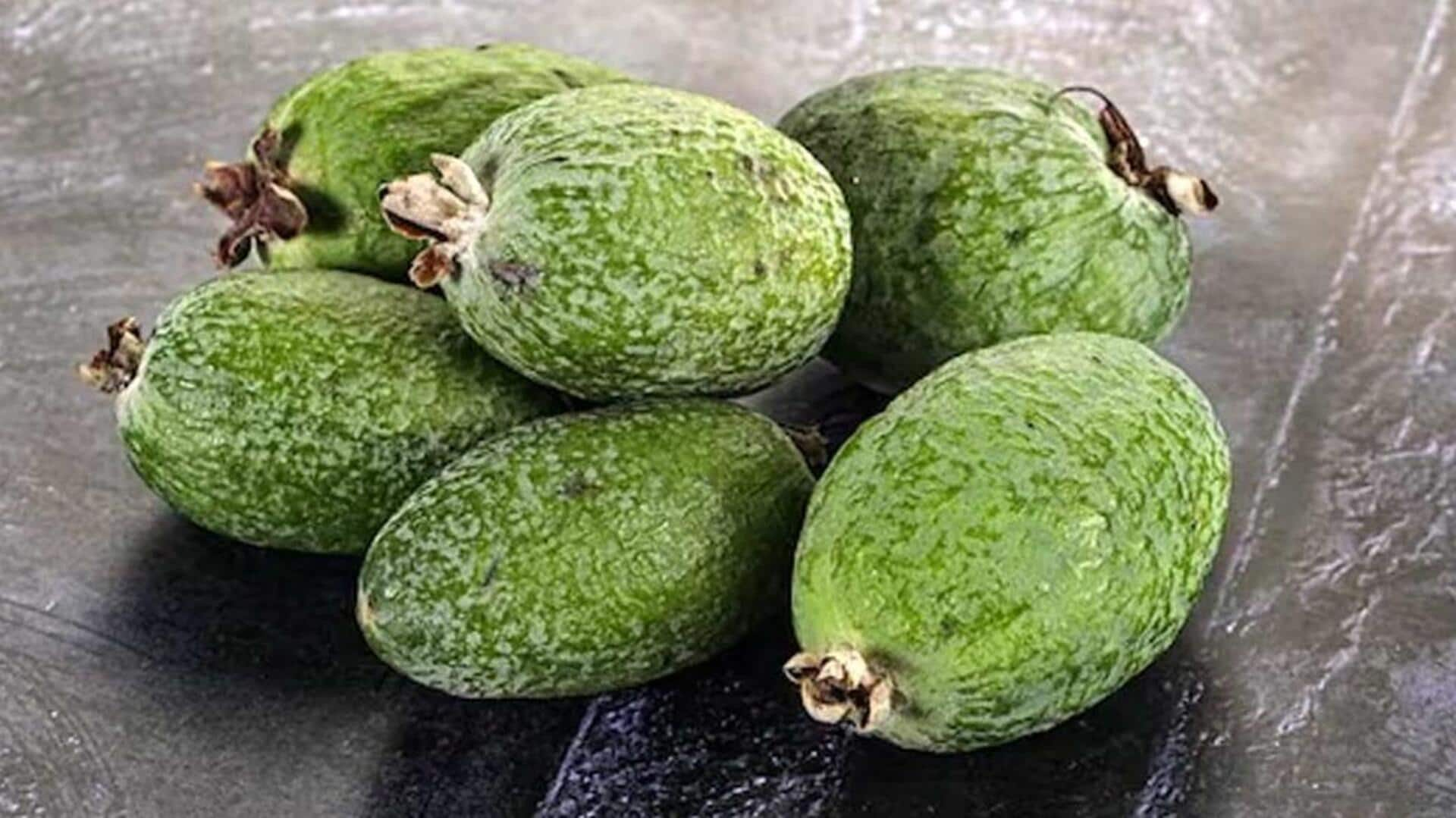
Feijoa: Nutrition facts and health benefits
What's the story
Feijoa, or pineapple guava, is a tropical fruit that provides some incredible nutritional benefits.
Loaded with essential vitamins and minerals, this small green fruit makes an excellent addition to your diet.
Not just delicious, feijoa is also extremely beneficial for your overall health.
Let's take a look at the nutritional facts and some surprising health benefits of feijoa.
Vitamin boost
Rich in vitamin C
Feijoa is an excellent source of vitamin C, which plays a crucial role in boosting the immune system.
A single serving can provide more than 50% of the daily recommended intake of vitamin C.
This vitamin helps protect the body against infections and supports skin health by promoting collagen production.
Digestive aid
High fiber content
Packed with high levels of dietary fiber, feijoa makes an excellent aid in digestion and promotes regular bowel movements.
This fiber-rich fruit is pivotal in preventing constipation and ensuring a healthy digestive tract.
Additionally, the fiber in feijoa makes you feel full, which can be helpful for those looking to manage their weight effectively.
Cellular protection
Antioxidant properties
The antioxidants in feijoa are essential in fighting oxidative stress by neutralizing harmful free radicals.
These substances are important in protecting cells from potential damage and in reducing inflammation across the body.
By adding antioxidant-rich foods such as feijoa to your diet on a regular basis, you could witness a positive effect on your overall health and well-being.
Healthy choice
Low-calorie snack option
Feijoas are low in calories, but rich in nutrients.
Hence, they make an ideal snack option for those looking to maintain/lose weight without compromising on nutrition.
With some 55 calories per 100 grams serving, they provide a guilt-free way to satisfy sweet cravings while offering essential vitamins and minerals.
Cardiovascular benefit
Supports heart health
Feijoas has potassium, which is essential for heart health.
It keeps blood pressure levels within normal ranges when consumed as part of an overall balanced diet.
This includes other potassium-rich food items such as fruits, vegetables, legumes, nuts, seeds, dairy products, fish, poultry, lean meats, whole grains, etc.